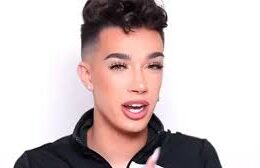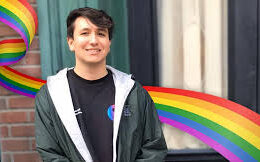Dear Grandson,
I want to share a story with you about my dear friend, James, from the 1960s. James and I met in college. Back then, things were very different. Society was more rigid, and there were far fewer open conversations about love, gender, or sexual identity. But James, even though he didn’t say it at first, was different in a way that I could sense. He was kind, funny, and brilliant, but he also carried this weight that I couldn’t quite understand.
At the time, there was so much pressure on young people to follow certain paths—to marry someone of the opposite sex, settle down, and live the life that society expected. But for James, something didn’t feel right. He didn’t talk much about his feelings, but I could tell he was struggling. It wasn’t until later that he shared with me that he was gay. Back then, it was something so difficult to talk about, especially in a world that wasn’t accepting of it.
I remember one evening, after we’d spent hours studying together, James sat me down and, almost in a whisper, told me he was gay. It was the first time I’d ever heard someone say it out loud, and I could see the fear in his eyes. He was terrified—not just of being rejected by others, but of the consequences he might face. Society back then didn’t tolerate it. Being gay was not something that was openly accepted. It was seen as taboo, even dangerous. James feared losing friends, family, and opportunities.
“I don’t know what to do, or where to go from here,” he said to me. “I just don’t want anyone to find out.”
I remember feeling my heart break for him. I had always known James was special, but I never realized how much he was hiding inside. He’d told me this secret in confidence, and I promised I would never tell anyone. But more than that, I wanted to support him, to tell him it was okay to be himself.
But back then, there was no Pride parade, no community support, no social media to help someone find others like them. It was a lonely, frightening time for someone like James.
As time went on, James did his best to keep his sexuality hidden. We spent more time together in private—always careful, always watching our backs. I’d see the weight on his shoulders, the way he held back, trying to live in the world as he was expected to. But despite the fear he carried, I could see the glimmer of hope in him, too. The desire to live authentically, but not knowing how or when it would ever be possible.
Years passed. We graduated, and James took a job in another city, one where he hoped he could start fresh. But the struggles never stopped. It was years before he found a group of people who accepted him for who he was—years before he could live openly as a gay man without fear of being ostracized. He had some relationships during those years, but they were always in the shadows, hidden from everyone else, never able to be fully real.
One day, I received a letter from him. In the letter, he told me how he’d met someone, a man named Michael, who made him feel seen and understood in ways he never thought possible. They were building a life together, slowly but surely, in a world that still wasn’t ready to accept them. But James wrote about his happiness—about the joy of simply being himself, the joy of loving someone openly and without fear for the first time.
“I wish we didn’t have to hide anymore,” he wrote. “I’ve spent so many years pretending. I just want to be me, without all the masks.”
That letter was one of the most beautiful things I’d ever read. It was James’ victory over the fear that had plagued him for so long. The world had started to change, slowly, but it was still tough. It wasn’t until decades later, when Pride marches became more visible and society began shifting, that he could walk hand in hand with Michael in public without fear of reprisal.
And it was all because he chose to live his truth, even when it seemed impossible.
What I admire most about James is his courage. The way he kept going, even when the world told him that his love was wrong. He never gave up on finding love and living authentically, even when it seemed like he had to hide who he truly was.
And now, Grandson, I want to share this story with you because I want you to understand something very important: You are lucky to live in a time where people like you are no longer forced to hide. You can be proud of who you are, without fear of judgment. The world today is not perfect, but it is so much more accepting than the world James and I grew up in.
When James finally found his happiness, it wasn’t easy, but it was his truth. I want you to know that no matter what challenges you may face, you deserve the chance to love who you love without fear. You deserve to be yourself, to express your love freely, and to be proud of who you are.
So, no matter what path you choose, whether it’s a path of love, self-discovery, or courage—know that you have my love and support. You are strong, you are worthy, and you deserve a life where you can love openly and fully.
With all my love,
SnazzyGranny


